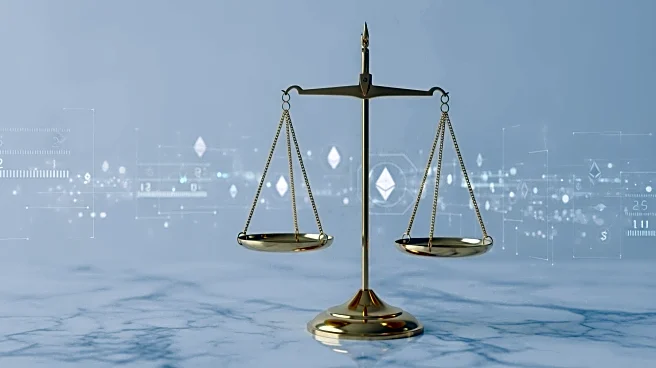What's Happening?
President Donald Trump has granted clemency to Changpeng Zhao, the former CEO of Binance, the largest cryptocurrency exchange globally. Zhao had previously pled guilty to violating anti-money-laundering
laws, resulting in a settlement with the Treasury Department that included a $4.3 billion penalty and a four-month prison sentence. Although Zhao has been out of prison for over a year, he was restricted from running Binance. The pardon comes amid reports of Binance's involvement with World Liberty Financial, a crypto start-up co-founded by Trump's sons, which has seen significant financial growth. Zhao's lobbying efforts for clemency included hiring Teresa Goody Guillén, a lawyer representing World Liberty Financial, and engaging with Trump’s circle.
Why It's Important?
The pardon of Changpeng Zhao highlights President Trump's use of clemency as a tool to benefit his political and business interests. This decision could have significant implications for the U.S. cryptocurrency industry, potentially easing regulatory pressures on Binance and facilitating its reentry into the U.S. market. The move underscores the intertwining of political influence and financial gain, with Zhao's pardon serving both as a gesture to the crypto community and a response to the financial benefits accruing to the Trump family from recent business deals. This development may influence future regulatory approaches to cryptocurrency in the U.S.
What's Next?
The pardon may pave the way for Binance to re-enter the U.S. market, potentially reversing previous penalties imposed on the company. This could lead to increased activity and investment in the U.S. crypto sector, aligning with Zhao's promise to help make America the 'Capital of Crypto.' The Trump administration's approach to clemency could continue to prioritize financial and political interests, potentially affecting future regulatory decisions and the broader landscape of presidential pardons.
Beyond the Headlines
President Trump's use of clemency raises ethical questions about the role of financial influence in political decisions. The intertwining of business interests with political actions may set a precedent for future administrations, challenging traditional views on the impartiality of presidential pardons. This development could lead to increased scrutiny of the ethical dimensions of political and business relationships in the U.S.










